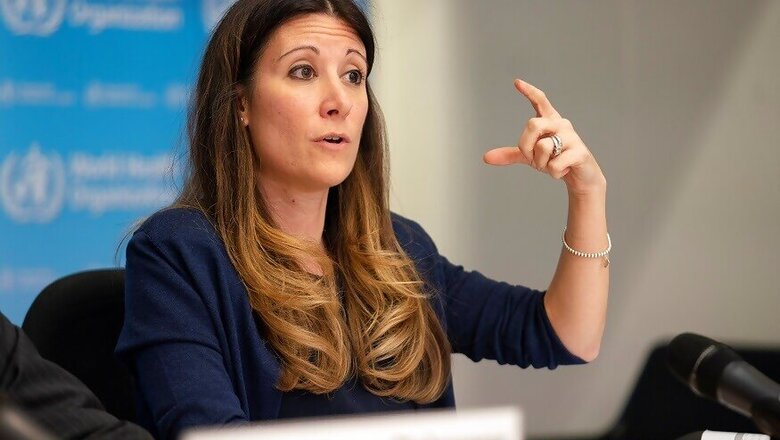
views
The World Health Organization said Thursday that as societies open up, many are starting to see a resurgence of Covid-19 transmission. “Much of this resurgence is occurring in clusters of cases related to gatherings of people, including at stadiums, nightclubs, places of worship and crowds. These types of gatherings can be amplifying events that can be the spark that creates a much larger fire,” said WHO.
India has been registering almost 70,000 new cases each day, with about a 1,000 deaths. While recoveries have increased, so have the daily new cases and fatalities since the unlock process began in the country. Covid-19 is also starting to spread more in rural areas, which had previously been somewhat spared from the spate of the deadly disease.
WHO’s technical lead for Covid-19, Maria Van Kerkhove said countries should actively test people to find coronavirus cases even if they don’t show symptoms. She said when officials are investigating clusters of COVID-19, “testing may need to be expanded to look for individuals who are on the more mild end of the spectrum or who may indeed be asymptomatic.”
Van Kerkhove said countries were free to adapt WHO’s testing guidance for their individual needs and while testing itself was important, it was equally critical to get testing results back fast.
She said that relying on the concept of herd immunity for a timely decrease in infection, could prove dangerous. “If we think about herd immunity in a natural sense of just letting a virus run, it’s very dangerous because you would need a lot of people to be infected. And there are estimates of what percentage of the population needs to be infected, but that means that many people are infected, many people will need hospitalizations, and many people will die,” she said.
“So what we’re working towards in the vaccine and there are colleagues here who can supplement this, is that to have a safe and effective vaccine that could provide protection to a large proportion of the population so the virus doesn’t have an opportunity to transmit. But trying to reach herd immunity naturally would be very dangerous because a lot of people would die.”
Van Kerkhove also expressed concerns about public behavior, saying she’s growing “a little bit concerned” that the use of masks is leading some people to think they don’t need to keep safe distances from others.
“We’re seeing that people aren’t really adhering to the physical distancing anymore,” Van Kerkhove said. “Even if you’re wearing masks, you still need to try to do the physical distancing of at least one meter and even further if you can.”
Earlier Thursday, the WHO’s chief for Europe, Dr. Hans Kluge, warned that the coronavirus is a “tornado with a long tail” and said rising infections among young people could spread to more vulnerable older people and cause an uptick in deaths.
He said younger people are more likely to come into closer contact with the elderly as the weather cools across the continent and families move activities inside.
“We don’t want to do unnecessary predictions but this is definitely one of the options: that at one point there would be more hospitalizations and an uptick in mortality,” he said, speaking from Copenhagen, site of WHO’s European headquarters.
“It may be that younger people indeed are not necessarily going to die from it but it’s a tornado with a long tail and it’s a multi-organ disease,” he said.
Kluge said 32 out of 55 states and territories in WHO’s European region have recorded a 14-day new infection rate increase of over 10%, calling that “definitely an uptick which is generalized in Europe.”
He said the autumn presented a “tricky situation” because of widespread school reopenings, the onset of the flu season and the increased mortality among older people in winter months.
The U.N. agency this week recommended that children 6 to 11 wear masks at times to prevent the spread of the virus, especially in areas of wide community transmission or where social distancing cannot be maintained, and children 12 and older wear masks as often as adults.
As cases across Europe have increased amid the summer holiday season, WHO also issued advice for hotels and related businesses. WHO said hotels should consider reducing occupancy rates to ensure social distancing and said all staff and guests should comply with basic COVID-19 prevention measures like frequent hand-washing and mask-wearing.
It said physical barriers like protective plexiglass shields should be used to separate hotel staff and guests at reception desks. WHO said national guidance should be followed on whether or not indoor dining was allowed but that “buffets are not recommended.”
It said gyms, pools and spa facilities could be used with certain restrictions, like limiting the maximum number of people to ensure social distancing.
(With inputs from AP)




















Comments
0 comment